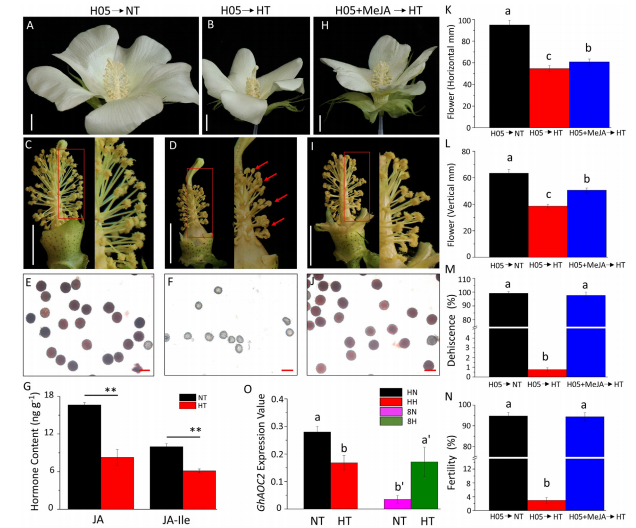Abstract
Cotton (Gossypium spp.) yield is reduced by stress. In this study, high temperature (HT) suppressed the expression of the jasmonic acid (JA) biosynthesis gene allene oxide cyclase 2 (GhAOC2), reducing JA content and causing male sterility in the cotton HT-sensitive line H05. Anther sterility was reversed by exogenous application of methyl jasmonate (MeJA) to early buds. To elucidate the role of GhAOC2 in JA biosynthesis and identify its putative contribution to the anther response to HT, we created gene knockout cotton plants using the CRISPR/Cas9 system. Ghaoc2 mutant lines showed male-sterile flowers with reduced JA content in the anthers at the tetrad stage (TS), tapetum degradation stage (TDS), and anther dehiscence stage (ADS). Exogenous application of MeJA to early mutant buds (containing TS or TDS anthers) rescued the sterile pollen and indehiscent anther phenotypes, while ROS signals were reduced in ADS anthers. We propose that HT downregulates the expression of GhAOC2 in anthers, reducing JA biosynthesis and causing excessive ROS accumulation in anthers, leading to male sterility. These findings suggest exogenous JA application as a strategy for increasing male fertility in cotton under HT

full text https://www.sciencedirect.com/science/article/pii/S2214514122001301?via%3Dihub